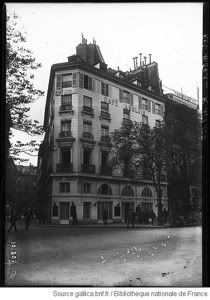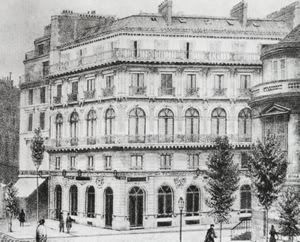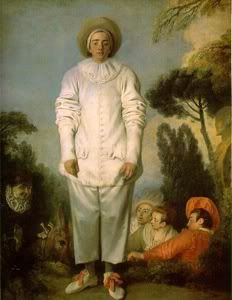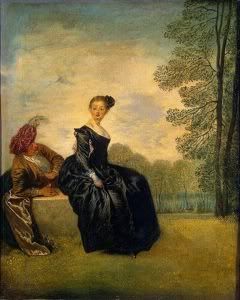Proust and character writing, delving right into Swann's psyche. The onset or growth of Swann's feelings for Odette, which are ultimately his downfall, is like an internal battle to which we have a first seat row. In fact we seem to have a better handle on what's happening to him than he does, and so do his friends and acquaintances, who felt that "indeed Swann was no longer the same man" (p.333). Even the Verdurins have decided "the man must be a prize idiot" (p.322)
Swann is too busy making love out of nothing at all. He recognizes that his recent behavior is "foreign to his nature" (p.323) but he imagines himself in love. He goes so far as to "cease to be able to even think of her, so busy would he be in the search for pretexts which would enable him not to leave her immediately" (p.324). He turns her into what he considers a classic beauty by continuing to imagine her as Botticelli's Zipporah, and when it comes to the final moment of consummation, he begs her not to speak but to give only signs, perhaps because her voice will give her away for what she is...not much different from the shadowy figures of women who approached him in the dark on the same street where later he finds her, Odette. Even the act itself is disguised as something else when they persist in referring to it (sex) as doing a cattleya (p.331). By giving it a different name he is convincing himself that this is a "pleasure which had never before existed" but it's also a pleasure which has to "create" (p.332).
Swann fights with himself. He knows in his mind that Odette is nothing special, that her "qualities were not such as to justify his setting so high a value on the hours he spent in her company" (p.335) but we see him losing the battle, and the first hints of jealousy when he thinks of her existing outside of the time they have together. He already recognizes, and we are warned, that this love is sinking like the moon (p.338), the only problem, which we find soon enough, is that he goes down with it.
Art and life: In a way Swann ruins his life because he isn't actually living it. Instead he is living in a reproduction of the art he loves so much. He has ceased to see the world at all for what it really is. This may be the exact opposite of art being a means of saving history, or moments in time, and of providing a more pure form of experiencing existence, now art is getting in the way of experiencing life as it really is.
Cool stuff
I love that, different from Combray, Paris being a real place Proust has peppered the text with references to real locations.
The Café Anglais, and the Maison Dorée and Tortoni's on the Boulevard des Italiens (p.327) where Swann searches for Odette


"and the life of Odette at all other times...appeared to him, with its neutral and colourless background, like those sheets of sketches by Wateau" (p.340)



Did you read the other volumes?
ReplyDelete